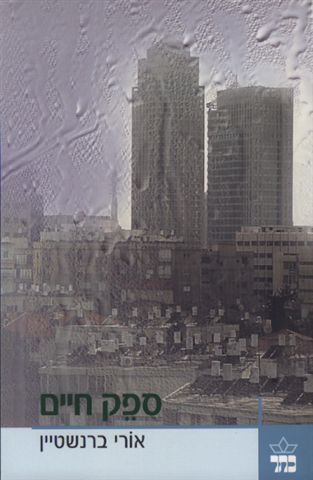
A Dubious Life
Ory Bernstein`s novel is written in the tradition of Proust`s A la Recherche du Temps Perdu, and is a serious attempt to recount one man`s life and to capture its essence in words. The narrator, a historian approaching 60, who wrote poems in his youth but abandoned poetic dreams in favor of facts about the past, is sitting in a New York hotel room and trying to establish order in the chaos of his memories. This is an ambitious endeavor because, however beautiful, the words of a poet are incapable of turning life into a story, and memory, too, is a fabrication, requiring the writer to fluctuate between different versions of the same events and experience. Nothing is certain, which is why the novel is called A Dubious Life, but the resultant mosaic is beautiful and the attempt to pin down fluid and evasive reality through literature is noble and desperate.
The narrator was born in Tel Aviv to a mother who was raised in a poor agricultural colony and a father who immigrated from Russia, found a haven in Eretz Israel, but never made it his homeland. His childhood, his parents, and the intimate Tel Aviv of the Mandate times – so different from the bustling city of today – play a central role in the novel. His attempt to trace the life of the father who abandons his family to take up a wanderer’s life is not successful, but the narrator discovers how similar he is to his father. A good friend teaches him that one can live without a homeland and the teacher who introduced him to the mysteries of poetry is the first to tell him that words can be a homeland. And what of love and passion? The most beautiful and moving sections of this novel deal with the narrator’s youthful love, who vanishes from his life and returns years later. Nobody writes about love like Bernstein.

